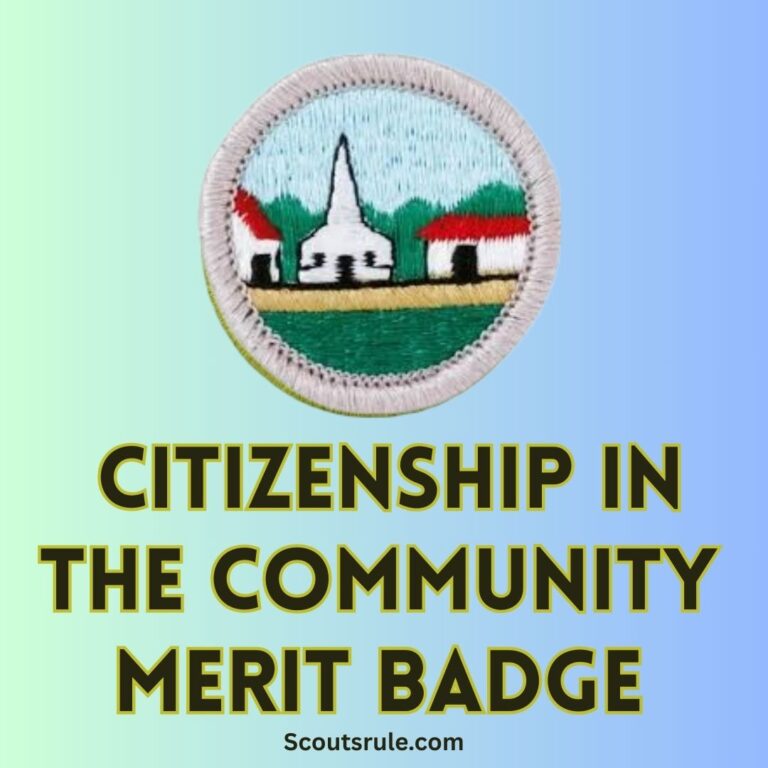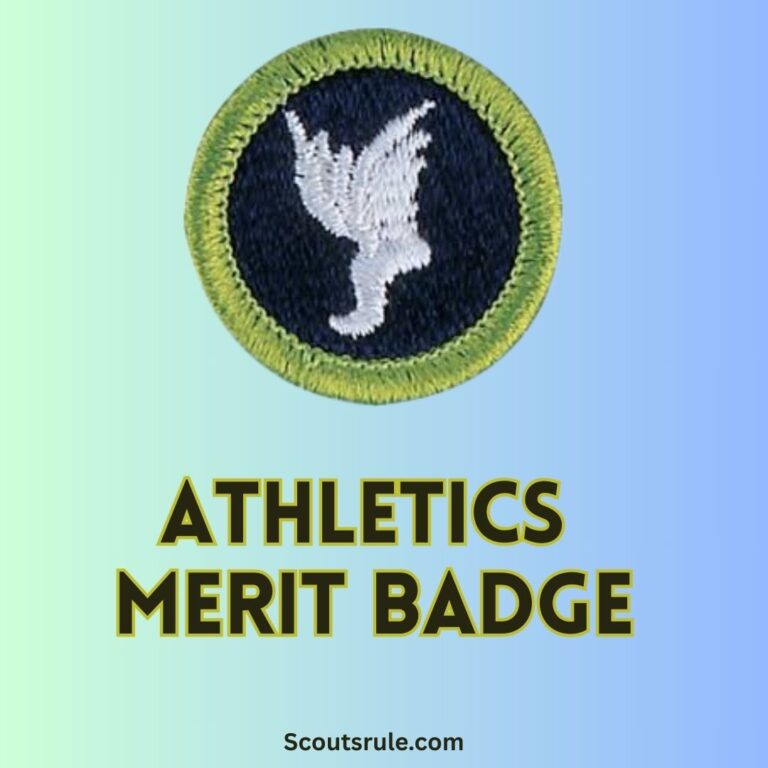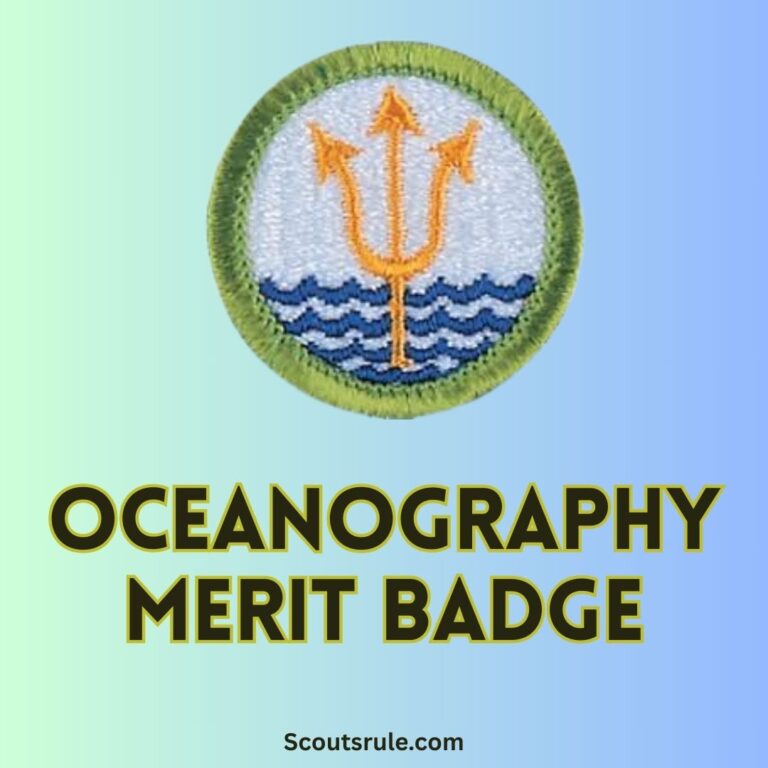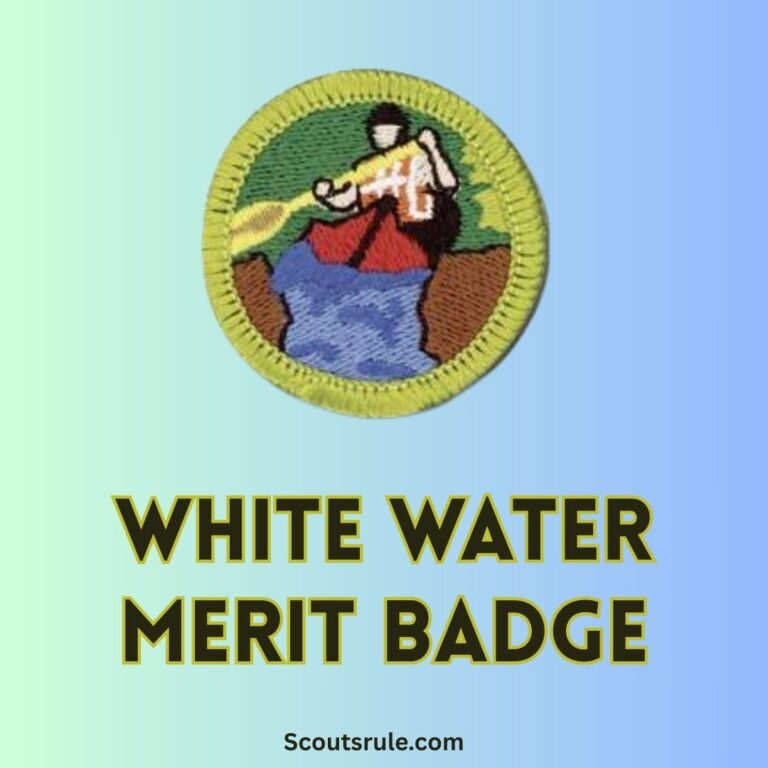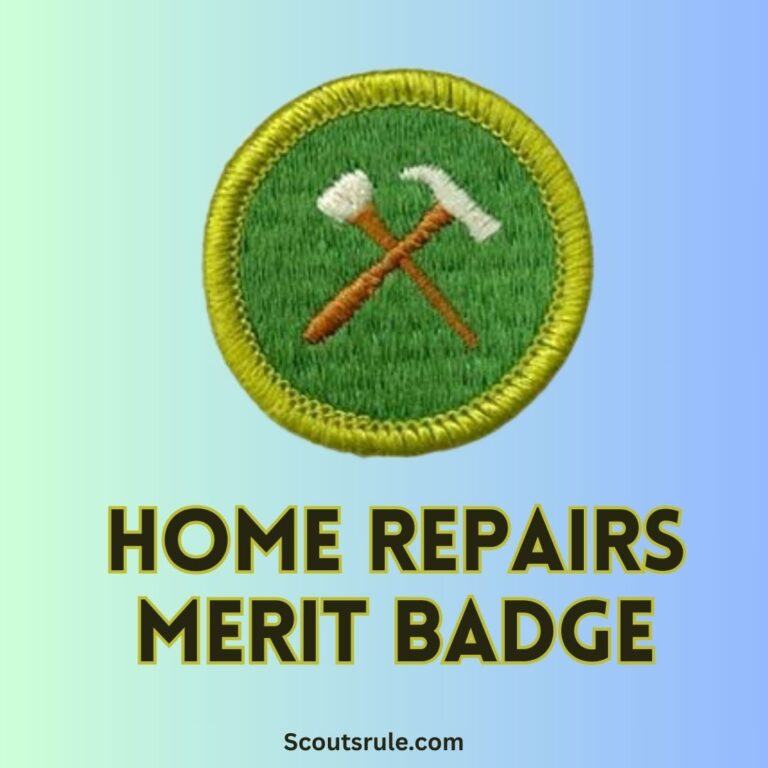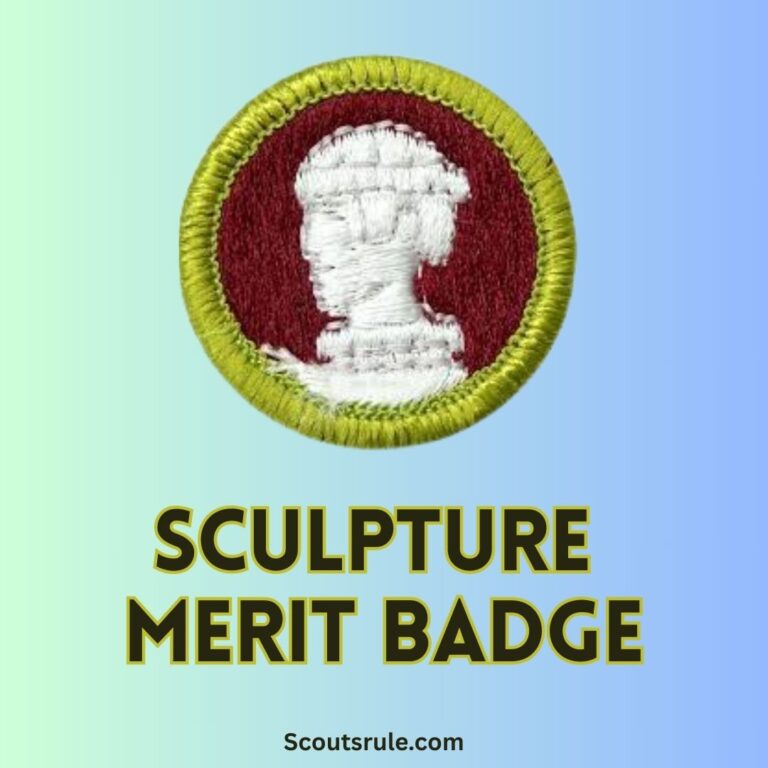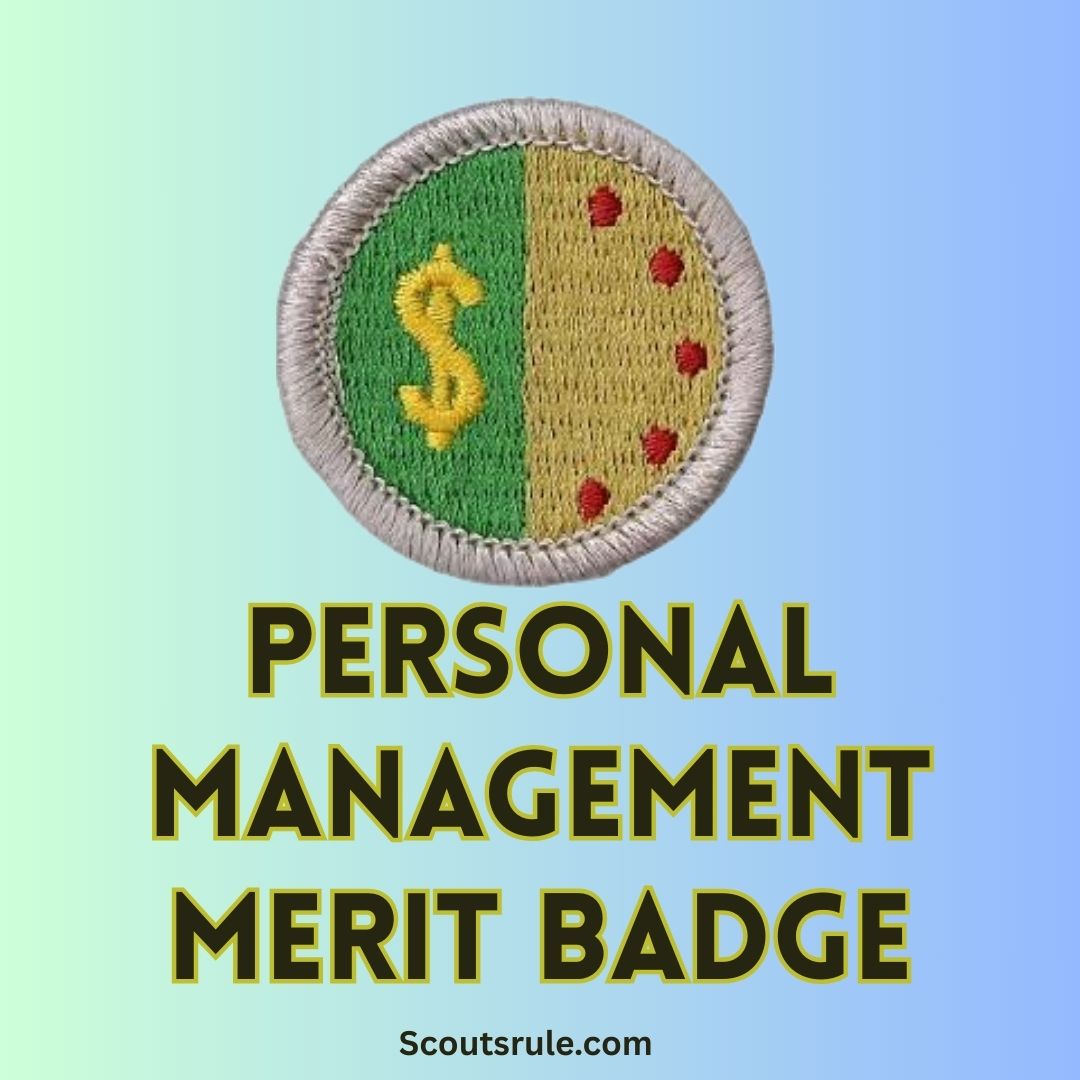
The Personal Management Merit Badge is an Eagle-required badge that challenges Scouts to take control of their finances, manage their time effectively, and set realistic goals. By earning this badge, you’ll gain valuable skills that will help you succeed in school, work, and life. This badge requires both theoretical knowledge and practical application, making it one of the most comprehensive and rewarding badges in Scouting.
This guide will walk you through each requirement, offering tips, examples, and insights to help you succeed. Let’s dive into the details!
Post Contents
1. Financial Literacy and Budgeting
Requirement 1: Choose a Major Expense and Create a Savings Plan
- Task: Choose an item that your family might want to purchase that is considered a major expense. Write a plan that explains how your family would save money for this purchase.
- Steps:
- Identify the item (e.g., a new car, home appliance, or vacation).
- Research the cost and create a timeline for saving.
- Discuss the plan with your family and merit badge counselor.
Example Plan:
- Item: Family vacation to a national park
- Cost: $3,000
- Savings Strategy:
- Monthly savings of $250 for 12 months
- Reduce discretionary spending (e.g., dining out)
- Explore discounts and deals for travel and lodging
Requirement 2: Develop a Shopping Strategy
- Task: Create a written shopping strategy for the item identified in Requirement 1.
- Key Points to Include:
- Compare prices from different vendors.
- Consider quality, warranties, and long-term value.
- Plan for seasonal sales or promotions.
Example Strategy:
- Research online and in-store prices.
- Compare reviews and ratings for quality.
- Purchase during holiday sales for discounts.
2. Time Management and Goal Setting
Requirement 3: Create a Weekly Schedule
- Task: Write a “to-do” list of tasks or activities for the coming week and prioritize them. Create a seven-day calendar or schedule that includes these tasks along with your set activities (e.g., school, sports, or Scout meetings).
- Steps:
- List tasks (e.g., homework, chores, personal projects).
- Rank tasks by importance and urgency.
- Allocate time for each task in your schedule.
Example Schedule:
| Day | Set Activities | Tasks/Activities | Priority Level |
|---|---|---|---|
| Monday | School, Soccer Practice | Math Homework | High |
| Tuesday | School, Scout Meeting | Science Project | Medium |
| Wednesday | School | Clean Room | Low |
Requirement 4: Follow Your Schedule and Reflect
- Task: Follow your schedule for one week and keep a daily diary or journal of your activities. Reflect on what worked and what didn’t.
- Tips:
- Be realistic about your time commitments.
- Adjust your schedule as needed to stay on track.
- Discuss your reflections with your counselor.
3. Financial Tools and Concepts
Requirement 5: Understand Loans, Interest, and Credit
- Task: Explain to your counselor the following:
- What a loan is, what interest is, and how the annual percentage rate (APR) measures the true cost of a loan.
- The differences between a charge card, debit card, and credit card.
- The costs and pitfalls of using these financial tools.
Key Points:
- Loan: Borrowed money that must be repaid with interest.
- Interest: The cost of borrowing money, expressed as a percentage.
- APR: The annual cost of a loan, including interest and fees.
- Charge Card: Requires full payment each month; no interest.
- Debit Card: Withdraws money directly from your bank account.
- Credit Card: Allows borrowing up to a limit; interest applies if not paid in full.
Requirement 6: Credit Reports and Debt Management
- Task: Explain credit reports, how personal responsibility affects them, and ways to eliminate debt.
- Key Points:
- Credit Report: A record of your credit history, including loans, payments, and debts.
- Personal Responsibility: Timely payments and responsible borrowing improve your credit score.
- Debt Elimination: Strategies include budgeting, prioritizing high-interest debts, and avoiding unnecessary expenses.
4. Project Planning and Execution
Requirement 7: Prepare a Written Project Plan
- Task: Create a written plan for a project, including the desired outcome, steps to achieve it, and a timeline.
- Examples of Projects:
- Planning a camping trip
- Organizing a community service event
- Developing a school or religious activity
Example Plan:
- Project: Organize a community clean-up event
- Desired Outcome: Collect 50 bags of trash and recyclables
- Steps:
- Recruit volunteers
- Secure supplies (trash bags, gloves)
- Assign roles and areas to clean
- Timeline:
- Week 1: Plan event and recruit volunteers
- Week 2: Gather supplies and finalize logistics
- Week 3: Execute event
5. Insurance and Risk Management
Requirement 8: Explain Types of Insurance
- Task: Discuss with your counselor why people purchase the following types of insurance and how they work:
- Automobile
- Health
- Homeowner’s/Renter’s
- Life
Key Points:
- Automobile Insurance: Covers damages and liability in car accidents.
- Health Insurance: Pays for medical expenses and preventive care.
- Homeowner’s/Renter’s Insurance: Protects property and belongings from theft or damage.
- Life Insurance: Provides financial support to beneficiaries after the policyholder’s death.
Tips for Success
- Start Early: Many requirements involve long-term projects, so begin as soon as possible.
- Stay Organized: Use charts, journals, and calendars to track your progress.
- Communicate Effectively: Discuss your plans and reflections openly with your counselor and family.
- Be Thorough: Provide detailed explanations and examples for each requirement.
- Reflect on Lessons Learned: Think about how the skills you’ve gained can be applied to your daily life.
Conclusion
The Personal Management Merit Badge is one of the most challenging and rewarding badges in Scouting. By completing the requirements, you’ll gain valuable skills in financial literacy, time management, and goal setting—skills that will serve you well throughout your life. Embrace the process as an opportunity to grow, learn, and prepare for the future.

Hi, Robin here, A former lead Scout and here I share my inspiring stories about USA Scouts, leadership, adventure, how to guides and more.

